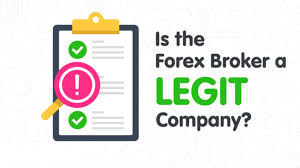Forex Trading Fraud Or Legit, The world of forex trading has garnered significant attention in recent years, attracting both seasoned investors and newcomers eager to capitalize on the foreign exchange market’s potential. However, with its rapid growth, concerns about forex trading fraud have also emerged. This article aims to dissect the legitimacy of forex trading, the risks associated with it, and how to differentiate between genuine trading platforms and fraudulent schemes.
Understanding Forex Trading
Forex, or foreign exchange, involves the buying and selling of currencies in the global market. As one of the largest financial markets, with a daily trading volume exceeding $6 trillion, forex trading offers opportunities for profit through currency fluctuations. Traders speculate on the rise or fall of currency pairs, aiming to make gains based on market movements.
The Appeal of Forex Trading
The allure of forex trading lies in its potential for high returns and accessibility. Many traders are drawn to:
- Leverage: Forex brokers often provide high leverage, allowing traders to control larger positions with a smaller capital investment. This can amplify profits, but it also increases the risk of substantial losses.
- 24/5 Market: The forex market operates 24 hours a day, five days a week, offering flexibility for traders worldwide.
- Variety of Trading Strategies: From day trading to swing trading and scalping, forex provides various strategies that can cater to different risk appetites and trading styles.
The Dark Side: Forex Trading Fraud
Despite its legitimate opportunities, the forex market is not without its pitfalls. Instances of forex trading fraud are unfortunately prevalent, with scammers exploiting the market’s complexity and the lack of regulation in certain regions. Common types of fraud include:
- Ponzi Schemes: Scammers promise high returns on investments but use funds from new investors to pay earlier investors, creating the illusion of profitability.
- Fake Brokers: Unscrupulous individuals pose as legitimate brokers, offering enticing trading platforms that turn out to be fraudulent. They often disappear with clients’ funds.
- Signal Seller Scams: Some traders sell “surefire” trading signals that claim to guarantee profits. In reality, these signals often lead to losses, and the sellers may have ulterior motives.
- High-Pressure Sales Tactics: Fraudulent brokers may use aggressive sales tactics to pressure individuals into making quick decisions without proper research.
How to Identify Legitimate Forex Trading Platforms
To navigate the forex trading landscape safely, traders should consider the following guidelines:
- Regulation: Always choose a broker regulated by reputable financial authorities, such as the Financial Conduct Authority (FCA) in the UK or the Commodity Futures Trading Commission (CFTC) in the USA. Regulation provides a layer of security and accountability.
- Transparent Practices: Legitimate brokers should provide clear information about their fees, trading conditions, and execution methods. If something seems unclear or too good to be true, it probably is.
- User Reviews: Researching broker reviews and ratings on reputable financial websites can provide insight into the broker’s reputation. Look for consistent patterns in feedback from other traders.
- Demo Accounts: A legitimate broker will often offer a demo account where traders can practice without risking real money. This allows potential clients to test the platform and its features before committing.
- Customer Support: Responsive customer support is a hallmark of a trustworthy broker. If a broker is difficult to reach or unhelpful, it may be a red flag.
Conclusion: Forex Trading – Fraud or Legit?
Forex trading is a legitimate avenue for investment, but it is also fraught with risks, particularly concerning fraud. By educating themselves and adhering to best practices when selecting brokers, traders can minimize their chances of falling victim to scams. As the forex market continues to evolve, vigilance and due diligence will remain essential for navigating its complexities.
In summary, while forex trading can be a legitimate means of generating income, potential traders should always be cautious and informed to ensure a safe trading experience.
You Might Also Like These:
Recovery Plan for Cyber Attack: Ensuring Business Resilience
Cyber Incident Management Recovery Planning: A Comprehensive Guide
Cyber Security Disaster Recovery Plan Template for HIPAA Compliance
Recovery Plan for Cyber Attacks: Safeguarding Your Business
Cyber Forensics Data Recovery: A Critical Component of Digital Investigations

